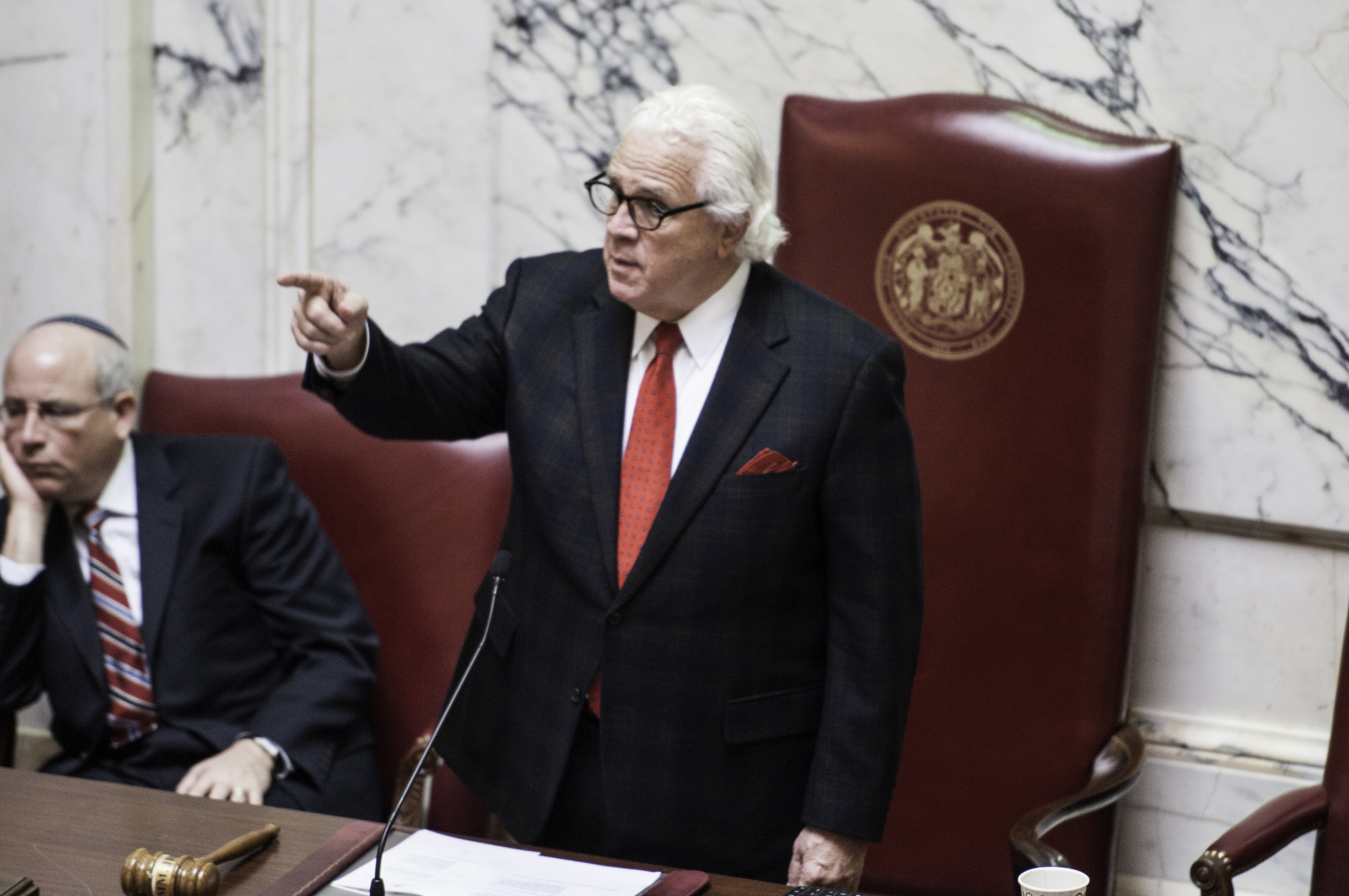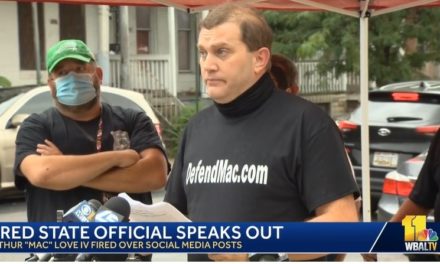By Megan Poinski
Megan@MarylandReporter.com
Recommendations on how to get highway user revenues back to county and municipal governments – and how much money is really needed – dominated discussion as the Blue Ribbon Commission on Maryland Transportation Funding worked toward finalizing recommendations for the governor and General Assembly.
Commission Chairman Gus Bauman said that the final report will be a sort of “second chapter” to the recommendations it sent in February. Meeting in Frederick Tuesday, members looked over some drafts of policy suggestions gleaned from previous discussions and written up by commission staff.
But problems arose from the very beginning. The first recommendation on the draft was that the General Assembly pass legislation that would allow local jurisdictions to create their own taxes to use for road construction.
“It seems to me if we are doing this, we’re waving the white flag,” said member Lon Anderson, director of government and public relations for AAA Mid-Atlantic. “The state is never going to come up with enough money, so we’re letting the municipalities go.”
Judith Davis, the mayor of Greenbelt representing the Maryland Municipal League on the commission, said that while local governments are desperate for more funds, the state should meet its obligations. Local governments received millions of dollars from the state to use on road projects in less critical budget times, but those funds have lately been taken to meet other government needs.
Bauman said that the recommendation was not intended as a method to give up on state funding, but as a way to give local governments more flexibility. However, he said, it is clear that the commission does not exist to make recommendations to local governments. He recommended deleting the recommendation.
“We’re going down a path that could undercut our core mission,” he said. “This raises more complications than necessary.”
Regardless of whether creating local funding mechanisms are included in the commission’s recommendations, members started talking about how much money might be needed in order to meet the state’s transportation needs and return funding to local governments. The commission initially recommended the state raise $800 million in new transportation funds through new revenues and bonds. Factoring in legislative changes made during the General Assembly session, that recommendation goes down to $520 million.
Several commission members didn’t think $520 million in new revenues would be enough to give some money to local jurisdictions for projects. Figures were not formally discussed on Tuesday, but some members recommended that the commission increase the new revenue target to $870 million.
“That’s possible, but is it probable?” asked Del. Tawanna Gaines, who chairs the Appropriations subcommittee dealing with transportation.
Commission members left the finances of the recommendation – and whether it should be conservative or extremely optimistic – for a later meeting. Other items discussed by the commission include:
· Requiring an extremely quick timetable for the legislature to approve any public-private partnership for transportation. The draft recommendation at the end of Tuesday would be that all review and approval take no more than 10 days.
· Ending subsidies for transit ridership that come out of the transportation trust fund. Currently, subsidies – mostly for people involved in social services programs – come out of money that would otherwise go to the trust fund for transportation. Commission members agreed that subsidies are valuable, but should be paid for by the agencies that sponsor them.
· Doing assessments to determine if transportation loans for local governments are a good idea.





Recent Comments